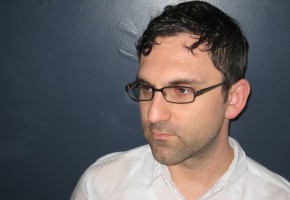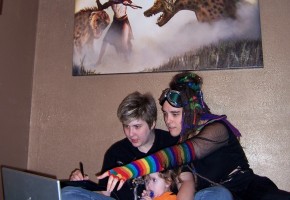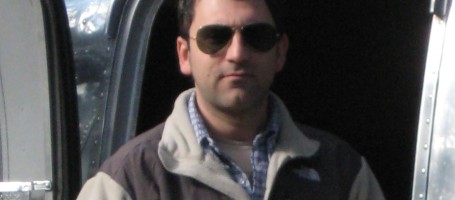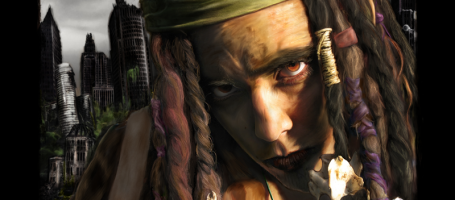One O’Brien summer party comes like shrapnel out of the vault. High, drunk, kids, music. One of my first dates with a new, crazed redhead. She slumped against that huge, gnarled tree; wrapped arms part way around it, sweating can of Bud in each hand.
Featured Writer
Writers
Jester
by Tom Barlow
“I didn’t know Dad had a will.”
“Oh yeah. The house was his, since he inherited it from Grandpa just before they got married.”
“What about Mom?”
“Remember how paranoid Grandpa got towards the end? He made Dad promise to protect the house with a pre-nup, where Mom waived any ownership of the house if Dad passed first. She gets to live here as long as she wants. But after she moves away or passes, it goes to either you or me.”
“Which one of us?”
“That depends. It goes to the one whose life sucks the most. Dad wrote this dumbass formula into the will; points for marriages, kids, degrees, income, deductions for divorces, health problems, low income, jail time, addictions.”
The Mount Zion Blues
by Chad Tracy
At the sound of my voice he slowly turns his wheelchair in my direction. He stops part way and sits in profile, able to see me and still look out the window at the same time. He is wearing a dark blue collared shirt with short sleeves, like a mechanic’s shirt without the patches. There are tattoos on his arms and thin, fingerless gloves on his hands. His face matches his voice, coarse and unshaven, a smoker’s face. He pats the bed beside him, gesturing for me to sit. As I get closer I notice that his eyes, peeking out from beneath folds of skin like a turtle’s, are a startling shade of blue. The blue of places like Iceland and Norway. Places I have never been.
What Lay Open
by Ann Batchelor Hursey
Heat in the open fields, birthing milkweed silk, brushed by berry thorns; cardinal of the catalpa canopy, high-pitched longing pumped from crimson heights—(I give thanks for your instructions.) Wetland, dry by June, you charm baseball diamonds wreathed in butterflies, when my life swirled white and orange and you, red and reckless bird, I almost forgot your whistling, cheering me to flight.
“swampland” / “the ice house” / “in ohio”
by Theresa Williams
where i live is wet and prone to storms. a few years ago i had a small tornado in my yard. it was so astonishing that I couldn t take my eyes off it. it gathered leaves, shattered chairs, then suddenly disbanded.
this was once swampland. everywhere are bottomless ditches.
She assumed
by Ann Batchelor Hursey
that once she lived near tides, she wouldn’t need the sound of peepers. How odd that hiking talus made her crave the open field. Orca dove off shore, while farther east, fireflies swam through wintergreen.
(Dis)order
by Holly Kabat
Every day he did the things that had once been done with someone who loved him, someone he loved in return very much. He had never been scolded for spending two hours in the bathroom situating his hair or for leaving the table to wash the sugar spoon before having morning coffee. Instead he had been accompanied by someone who helped him measure out a tablespoon of shampoo and a teaspoon of conditioner, someone who had put the same amount of sugar into their coffee and waited until the spoon was washed, dried, and stacked away before taking a sip.
The (Empty) Road
by Michelle Joy
The map is punctured. Incised by little moments of knowledge where thumbtacks once were. And now what I thought I knew is even emptier than where I might think I should go. So, for the most part, I just let ‘em crumple: the atlases, the brochures, the pamphlets—they collect ketchup smears and footprints. They’re necrotized by embers that never gain enough momentum to make it out against the whipping winds of the ride, as my knuckles lazily cradle cigarette after cigarette. Sometimes I look outside and my path is all oxygen-buddied-carbon exhaust and dissolving into that breeze of continuous motion—movement that becomes stagnant in its inertial perpetuity.
Jason L, ProseMeister
by Jeffrey Hammond
A self-hating writer, I learned, will quickly earn his or her reader’s sympathy. Though I feel sick about myself for admitting that, I was starting to gain too much of Professor Other’s sympathy. My final paper, which counted double and consisted of a stirring defense of Eminem, turned the trick. (You are aware, of course, that the phrase “turn the trick” is deliciously ironic in a feminist context.) Mine was not a defense along wimpy lines like freedom of speech or anything like that. I defended Eminem because with all his fame and money, he probably gets laid a lot. By now you know that I didn’t believe this sexist, misogynist, and androcentric thesis for a minute. The fact is, I’d rather read a thesaurus than listen to Eminem.
Digital Camera
by Patty Somlo
The more he walked, the more he began to think that perhaps Liz was right. The neighborhood wasn’t the same. It was strange, he thought, how a terrible destruction could creep in right under your nose, and you didn’t see it. Isn’t that what happened in Hungary? True, he was just a child, so what could he have known? Still, there had been his mother’s crying night after night. And then the packing up of dishes and paintings, the rooms of the apartment growing emptier by the hour, and his mother making him promise not to breathe a word to anyone.
Ohio
by Ginger Knowlton
My grandparents’ house was once a part of the Underground Railroad. I remember green. Those rooms in the grey basement, low-ceilinged and everything curved, the cellar door that no one used. To think that it had once opened to air. Geographically suspended, a nowhere space, a limbo, a place to rest.
Epitaph
by Henry Marchand
Death don’t make an asshole a saint, his father had said many times. So many, Matt thought, the man must have known more assholes than anything else, because whenever someone died this was the benediction. In the years since Matt had left Ohio and been on his own, he had found cause only on rare occasions to say it himself. It was a thing you only said, he felt, of a person who’d lived a mean, small, vicious life, whose signal achievements were negative things. He recognized that there was something in people, a common generosity perhaps, that inclined them to speak falsely well of such a person, even a real villain, after death. But this impulse Matt refused. As his father had, consistently.
TGIF
by Claude Clayton Smith
In early May I taught The Great Gatsby, a novel that, in retrospect, strikes me as a highly subconscious choice, for what is that book but a dream that turns into a nightmare and ends with murder? Gatsby wanted Daisy, who was married to another man, and when he tried to have her all to himself, tragedy ensued. Barb, like Daisy, was walking the fence. Since leaving her husband she’d been clinging to me like the leeches Lisa Wilson invited me to see one afternoon in her biology lab down in the science annex.
Ice
by Byron Barton
Evan said nothing, but kept walking. Streetlights cast hard circles of light every twenty-five meters; the ice and snow of chest-high banks, thrown up by passing plows over the last month, reflected the light, illuminated the street as bright as a nighttime baseball game.
“No one’s around to see, anyway. Christ, it’s two a.m.,” Evan finally said, his breath billowing in a cloud of frozen vapor beyond his fur-lined hood.
“I’m around,” Jeff said, shivering, trying not to slip on the icy surface. “Have some pride, man.”
For the young woman who kills snakes and works at Tractor Supply
by John Aylesworth
While she’s bragging, the cash register
beeps and a blacksnake in someone’s barn
kills another rodent and grows
a little longer, like the story
she’s telling to the other clerk
who’s running cans of 4 wheeler oil
along her conveyer belt.
Baggage
by Byron Edgington
Airport terminals contain more than travelers and their baggage; they hold emotions people are most conflicted about. Joy and anguish mix at the airport. Fear and exhilaration. Hello and goodbye. We were never meant to fly and we know that. We fly because it’s the fastest way to get over, and to get in touch with, those emotions at either end.
Skank
by Stephanie Seguin
She heard the word so many times it had shaken loose its husk and become something else, like when you repeat the name of a common object over and over until it melts into something foreign, something that sounds strange to your ears and feels odd in your mouth. Before that word she’d been the quiet one, the one who played clarinet in concert band, read R.L. Stine books and listened to Debbie Gibson on a second hand pink tape player. But after, it was like the word had cast a spell on her. Pink turtlenecks gave way to ripped jeans and safety pins in her eyebrows. Her black curls were pulled into a tight ponytail, her bangs brushed forward and hairsprayed into a frozen waterfall that hid her eyes.
Re-Up
by Eric Shonkwiler
The folks who came here revolved, they grew up and out, were replaced. The few that stuck around weren’t people to know. Old beer bottles stood and lay fallen throughout the living room and kitchen, rows of green and brown and clear. The rooms hadn’t changed much. Same two sofas sinking deeper in their middles, same stains on the carpet, new holes in the drywall.
Shift Change
by William Cass
In the girl’s kitchen, a blue vase of artificial flowers sat on the yellow oilskin tablecloth: white carnations with a backing of ferns. The girl was setting the table carefully for dinner as her mother gave her spelling words from her school list while peeling carrots in the sink; the list was spotted with water on the countertop. Once again, the girl’s father hadn’t come home yet from where he went after his shift at the factory ended, but neither of them spoke of that.
Roadtrip 2010: Hello Again, Ohio
by Maggie Glover
The billboards remind us about Jesus Christ; white highway crosses remind us of the human dead. I capture them in what will be grainy photos as night falls.
Land of No Lakes
by Jeremy Hauck
She wanted to tell him that if she didn’t get a raise, or find a new man soon, or if Hank ever missed another payment or two, he, too, could possibly be penciling in a check mark next to his name and “free lunch” in the lunch line register. As it was she was clothing him in her coworkers’ sons’ hand-me-downs. Last week she felt she was pushing it when the jean jacket she gave him had a rim of thread marks where she’d ripped off an anarchy patch. But she couldn’t tell him all this.
Artists
Interviews

Interview with Brendan M. Regan
I don’t call myself a Midwestern poet because I left. When I think of “poets of place,” I think of Gary Snyder, who built his home in northern California in the late 60s, and has lived and written from/of that place for decades. I consider myself a semi-nomadic poet with strong Midwestern sensibilities and memories. Now that I live in Seattle, I align myself with the rich heritage of Pacific Rim poets on both sides of the ocean, stretching back thousands of years.

Interview with MANDEM
Cleveland is the hearth/home of our art in many ways. The almost post-apocalyptic feel of huge segments of Downtown Cleveland (where we used to live) has impacted how we think about the world. You can see that in “Washerwoman” and “A Light in the Distance” (which are two images from the same non-existent landscape). Cleveland is magical. There are all these beautiful old houses from the Gilded Age—the millionaires at the time built mansions in the heart of East Cleveland, then abandoned them later as “urban blight” struck and so, unlike some urban areas that are architecturally impoverished, in East Cleveland slums look like a Victorian apocalypse took place.




